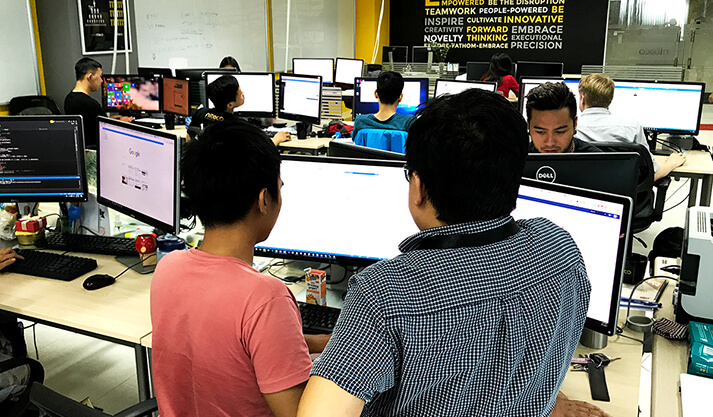It’s been a hot topic for more than five years now. AI and Cloud Services and their ingenuity has not been lost on the populous. For our industry, we have become well versed on machine learning and deep learning. Driven by Google, with Facebook and Microsoft not far behind, they have found a way to make these technologies more accessible and thus a developer’s life much easier.
How?
Thanks to Google’s stand out policy of supporting open source projects, cloud services have turned AI into an accessible toolbox. This means you are no longer required to read though paper after paper of deep learning or spend hours upon hours figuring out complex learning algorithms in order to learn and develop AI.
Why?
Because Google now offers a more compact way to make your applications “smart” via APIs.
At the Google Summit in Stockholm, which took place at the beginning of this month (October), I was thrilled to listen to Google’s presentation about AI APIs. Image APIs, machine translation, and video APIs are the top three technologies Google is offering and all of them are packed in Google Cloud Service. With this open source service, you can focus on using the APIs and train them using information that have been collected from your apps, without the need of developing an AI on your own. My personal favourite has to be the Google Video Service. It’s an awesome technology that has the ability to analyze and extract information per single frame. This is a huge step forward, not only for search engines but also for the media industry as a whole.
Spanner and Firebase are also worth a mention, as these two platforms are Google’s strategic products for developers working mostly with database – the backbone of AI and cloud services. Firebase is a mobile-based, cloud-hosted real-time document store where iOS, Android, and JavaScript clients share one Real-time Database instance and automatically receive updated data. Google Cloud Spanner, on the other hand, is a horizontally scalable, globally consistent and relational database service that works along with the biggest aspects of Google like Google Ads or Google Play. Their cloud services are expected to be smart, fast, of minimal setup, highly accessible, scalable and secure. This move really makes Google a direct competitor to Microsoft’s Azure.
Microsoft’s focus on Azure in recent years proves that they want to be market leaders in Cloud Services. They also have a strong interest in AI, evidenced by their recent investment in chatbot and image recognition technology. Google on the other hand, has always been the leader in the field for AI but they never competed directly with Microsoft as cloud service providers. However, with Firebase and Cloud Spanner huge changes are on the horizon.
Google’s AI chip was also introduced at the summit. The chip is uniquely built to train and execute deep neural network systems including image recognition, speech recognition, machine translation, as well as any other future technology that uses AI. Google themselves demonstrated how far their AI has come by using a new technology that is capable of receiving natural language queries and giving output in Excel. It is (even at this early stage) a huge step forward for language processing in AI.
Not to trail too far behind, other tech firms showcased their new cloud services at the summit too. For example, Spotify came with their demo featuring a cloud service that enables artists to publish their music. And Telia demonstrated their new testing service which they’ve integrated with Aftonbladet.
to transform your business and drive results?



